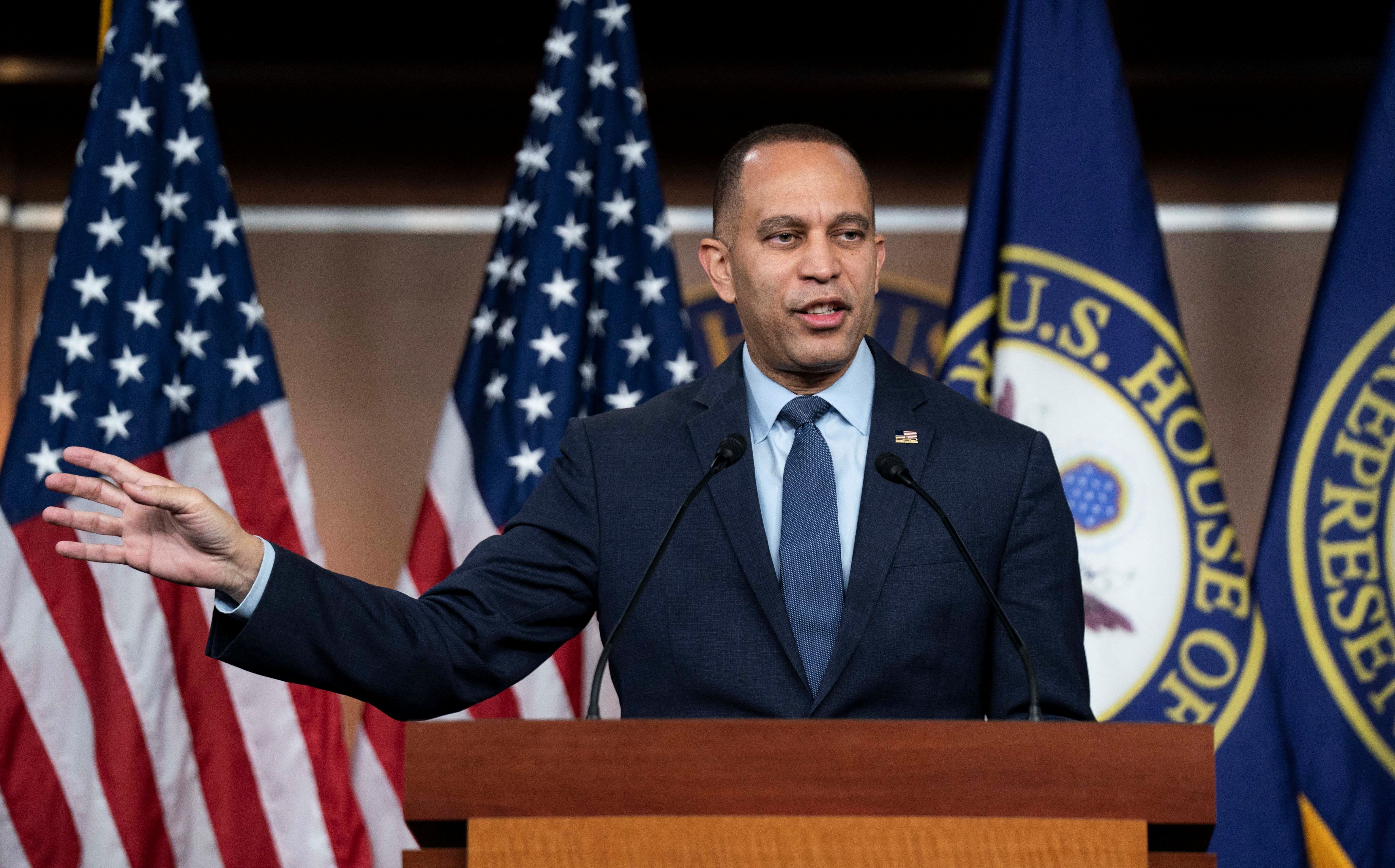While much of the world’s attention was rightfully focused on the temporary ceasefire in Gaza, and whether it could hold in place for more days to save Palestinian lives and secure the release of more hostages, the House of Representatives — including a sizable portion of the Democratic caucus — just approved a bill that would make war with Iran far more likely.
The number of Democratic defections — 90, or more than 40% of those Democrats who voted — was shocking considering how directly the bill, H.R. 5961, strikes at President Biden’s successful negotiations with Iran and U.S. diplomatic leverage and credibility.
This follows a number of Republicans engaging in bad-faith political attacks when Biden first secured freedom for five Iranian Americans, many of whom had been imprisoned for years in Iran’s notorious Evin prison. In exchange, the U.S. released Iranian nationals imprisoned on various charges and agreed to transfer Iranian assets held abroad from South Korea to Qatar, where they were to be made available for the purchase of food and medicine to benefit ordinary people in Iran.
The deal was a win-win. Hostages were freed and Iran was going to spend its own money on food and medicine, which could relieve long-standing medicine shortages inside the country. Yet Republicans falsely charged that Biden was “giving” billions to Iran, even though it was Iran’s own money and it wasn’t even being returned to Iran in the first place.
Then, after the horrific October 7 attacks, Republicans charged that the money was used to fund the attacks — even though it was all still sitting in banks in Qatar. Not a single dollar had been spent on humanitarian goods yet. These attacks were false, nakedly partisan and in total bad faith. Yet, many House Democrats, when presented with an opportunity to push back on the House floor and defend the president, caved instead and voted to renege on Biden’s hostage deal.
H.R. 5961 would freeze the $6 billion in Iranian assets that were transferred to Qatar and which the U.S. Treasury Department has direct oversight over. If it passes into law, it would force the administration to sanction Qatari banks and any other entities involved in transactions to expend Iran’s assets on food and medicine.
This is not just cruel, in that it further punishes civilians suffering under far-reaching economic sanctions, but profoundly unwise. If the U.S. again reneges on a diplomatic deal with Iran — this time under a Democratic president and not Donald Trump — the option to resolve crises with Iran through diplomacy would be dead for decades. Moreover, it risks directly interfering in ongoing and sensitive diplomatic negotiations to free hostages held by Hamas in Gaza. Qatar was the key power broker able to negotiate with all parties that helped secure freedom for more than 100 Israelis, Americans and other nationals who were outrageously abducted by Hamas in the horrific October 7 attack. With hostilities resuming, more than 100 hostages are believed to remain in militant hands as of this writing.
To sanction both humanitarian trade and the party who helped secure freedom for Iranian Americans, and is engaged in the hard work of seeking freedom for more Americans and Israelis, is patently absurd. However, it gets worse. An amendment added on the House floor — which the vast majority of Democrats actually opposed — would remove key waivers in core Iran sanctions targeting Iran’s oil and financial sectors. Those sanctions were utilized both in the September hostage deal to transfer Iran’s assets from South Korea to Qatar and in the landmark nuclear deal, the Joint Comprehensive Plan of Action, negotiated in 2015 under the Obama-Biden administration.
The amendment would thus remove key flexibility in Iran sanctions that allows any administration to exchange sanctions relief for any sort of diplomatic deal with Iran. Almost 80 House Democrats decided, rightfully, to oppose this diplomacy-killing amendment being added to H.R. 5961 — only to turn around and vote for it to become law after it was added to the bill. This list includes a number of lawmakers who should know better, and know that the Biden administration would not support these poison pills becoming law — like Democratic Leader Hakeem Jeffries (D-N.Y.) and experienced lawmakers and Senate hopefuls Adam Schiff (D-Calif.), Katie Porter (D-Calif.) and Ruben Gallego (D-Ariz.).
The stakes are higher for the Senate, where Democrats have far greater control of what bills hit the floor and have an important role to play in ensuring that legislation that would kill vital negotiations does not get to the president’s desk. There should be no mistaking: such a bill would kill even the possibility of negotiations with Iran, possibly for good. Iran’s leaders already have strong reason to suspect U.S. diplomatic credibility following Donald Trump’s withdrawal from the nuclear deal in 2018. If a Democratic president reneges on his own hostage deal, and then Democrats in Congress tie the sanctions knot in ways that cannot be unwound, the diplomatic path will likely be killed off almost entirely — leaving only sanctions and military options in the American policymaking toolkit.
Logic and reason must prevail over rash politicking, particularly on an issue as consequential as U.S. policy toward Iran. The House Democrats who voted for this reckless bill should be ashamed, and work to undo the damage they have done.















